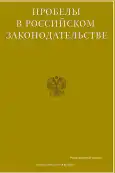Terrorist Financing: Criminal Law Definition
- Authors: Fakov A.M.1
-
Affiliations:
- North Caucasus Institute for Advanced Studies (branch) of the Krasnodar University of the Ministry of Internal Affairs of Russia
- Issue: Vol 15, No 5 (2022)
- Pages: 96-100
- Section: Articles
- URL: https://journal-vniispk.ru/2072-3164/article/view/147597
- ID: 147597
Cite item
Abstract
The purpose of this study was to study the criminal law definition enshrined in domestic legislation indicating the financing of terrorism, which is incorrect from a criminal law point of view, since specific criminal activities of a terrorist nature are subject to financing, i.e. various specific criminal acts that constitute the "practice of terrorism" and not the "ideology of terrorism". The content of the definition of terrorist financing should correspond to the essence of this specific type of criminal activity. The very same ideology of violence and adherence to it are not criminally punishable. In turn, funding can be directed not to the ideology of terrorism, but to specific activities for the formation and dissemination of this ideology, as well as to specific ideologically motivated criminal activities. In accordance with this, the Criminal Code of the Russian Federation provides for criminal liability, in particular, for public calls to carry out terrorist activities, public justification of terrorism or propaganda of terrorism. Thus, the indication in the Criminal Code of the Russian Federation of criminally punishable "terrorism" is inappropriate, it is necessary to talk about criminally punishable terrorist activities, including, among other things, criminal acts and the spread of the ideology of terrorism. The objectives of the study are to study the features of countering terrorism, which has a constant development not only of domestic mechanisms for combating these criminal acts, but also taking into account the globalization processes taking place in the modern world. An obligatory element of the anti-terrorist policy of the Russian state has become the organization of effective international cooperation on the stated issues. Conclusions: The allocation of individual countermeasures also seems inappropriate, since in this case the criteria for their effectiveness are fragmentarily taken into account. Thus, at present, the anti-terrorist policy is a very effective means of combating terrorism in Russia, since its implementation uses an integrated approach to organizing and implementing measures to counter this criminal act.
Full Text
##article.viewOnOriginalSite##About the authors
Azamat Mukhazhidovich Fakov
North Caucasus Institute for Advanced Studies (branch) of the Krasnodar University of the Ministry of Internal Affairs of Russia
Email: fakov_1984@mail.ru
Associate Professor of the Department of Internal Affairs Activities in Special Conditions Nalchik, Russia
References
- Decree of the President of the Russian Federation of July 2, 2021 No. 400 "On the National Security Strategy of the Russian Federation" // SZ RF. - 2021. - No. 27 (part II). - Art. 5351.
- The concept of countering terrorism in the Russian Federation (approved by the President of the Russian Federation on 05.10.2009) // Rossiyskaya Gazeta dated October 20, 2009 No. 198.
- Ignatov A.N. On the biosocial nature of crime. Bulletin of St. Petersburg University. Right. - 2016. - No. 1. - P. 63-73.
- Ignatov A.N., Ilyanovich E.B. Methodological bases for the study of crime // Society and law. - 2015. - No. 2 (52). - S. 129-133.
- Federal Law of August 7, 2001 No. 115-FZ “On Counteracting the Legalization (Laundering) of Proceeds from Crime and the Financing of Terrorism” (with amendments and additions) // SZ RF. - 2001. - No. 33 (Part I). - Art. 3418.
- Criminal Code of the Russian Federation No. 63-FZ dated June 13, 1996 // SZ RF. - 1996. - No. 25. - Art. 2954
- Ignatov A.N., Saprunov A.G. Criminal liability for promoting terrorist activities: improvement of legislative regulation // Society and Law. - 2018. - No. 2 (64). - S. 39-45.
- Federal Law of March 6, 2006 No. 35-FZ “On Counteracting Terrorism” // SZ RF. - 2006. - No. 11. - Art. 1146.
- Fakov A.M. Methodological foundations of the study of financing terrorist activities // Humanitarian, socio-economic and social sciences. - 2022. - No. 3. - P. 169-174.
Supplementary files








